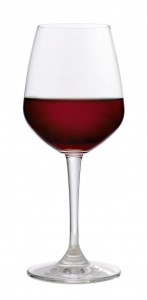When did you first fall in love with wine? What was the catalyst for this lifelong passion?
I have had brushes with wine since I was on the tricycle, trying watered down wine during dinners. It wasn’t until I was in Vancouver, Canada where wine studies was part of Food and Beverage Management curriculum that I started to see the light. Though I admit to snoozing in a few wine classes, the subliminal messages of how wine is an organic art with character and distinction, rather than any other alcoholic refreshment must have seeped into my dreams.
Tell us about your background in the Food & Beverage industry. How important has wine and your knowledge of it been during this period?
Food and wine has been a pair since the days of the Roman Empire and thankfully it has flourished since. I spent time working in various kitchens after graduating, developing further interest in the way flavours marry and give such pleasure. This helped in building the bridge between cooking and wine. Today I get so much pleasure from trying different wines with different food.
Tell us about iMust, your wine consultancy. What services do you offer?
iMust is my latest project focusing on wine education for both consumers and restaurants. We want to participate in the growth of wine consumption and provide assistance for anyone who is interested for more knowledge from their wine experience. The focus is education and providing a platform for people to develop wine skills, whether it is for personal pleasure or business-related. At the moment, we are focusing on developing a wine appreciation course for beginners and short wine workshops. In the near future, we are hosting ‘Spice & Wine’, a culinary tour pairing Padang dishes with various wines.
Do you think that the perception of wine is changing in Jakarta and in Indonesia?
Most definitely, and from various perspectives. The whole industry has flourished over the past 10 years and I hope to see the continual growth and one day give our neighbours a run for their wine.
From the consumer side, people are being more specific in terms of what they are looking for. Rather than “I am looking for red wine”, more and more folks are being more specific such as “I am looking for Merlot or Pinot Noir”. It is fantastic that there are signs of preference rather than just generic terms.
Most people consider wine in Indonesia a luxury, due to the heavy price tag. Do you have any suggestions for how to enjoy wine here without breaking the bank?
1. Know your taste. Remember the wine you like and familiarize with where you had it and bought it. This will give you a benchmark of the market value.
2. Decide on the budget you are happy with and try different wines in the similar price bracket. Don’t always stick to the “tried and true” as you may miss out on something that you may enjoy even more.
3. Brands are just labels. Big brands such as Jacob’s Creek and Penfolds are readily available around the world, carrying a strong brand identity, thanks to their
large marketing campaign.
Is there more potential for Indonesian-made wine, do you think, other than the few companies that do so in Bali? Do any other areas have potential for growth in this market?
The fact that Indonesia is able to produce wine is already really cool! This country’s weather is good for mangoes and durian, not grapes. That is already a major hurdle, coupled with the fact that wine drinking is not a part of the culture, the odds are stacked high. Yet, it has been done and the industry is growing. I believe there will be more interest in further developing this opportunity as wine consumption increases. Perhaps we will see Indonesia be the leader in wines being produced from natively grown fruits. After all, part of the fun in wine is experimenting.
What are the perfect conditions required for a good grape?
Good wine is made in the vineyard, not the winery. So it is crucial that the climate plays its part. We need four seasons to give the vines a proper cycle. Spring, when the buds burst and start to flower, allow the fruit bunches to set. Summer heat feeds the plants of nutrients and energy, which is pumped into the grapes. In fall the plants shed their leaves and prepare for rest in the winter. The winemakers I’ve talked to always refer to the vines as if they are humans. They require attention, care and
a work and rest cycle.
Do you consult on weddings and events as well? How would this work?
Yes, we can help organize your wine choices for weddings and events. We can help assess how much wine you require and offer suggestions as to which wine works with the food and budget. For events, we can arrange the selection as well as tutored tasting as a part of the event. As weddings and events require personal touches, the simplest way is to just drop us a line and we will discuss your requirements.
Tell us about your restaurant and wine bar, BACCO. You’re the first and only place to have an Enomatic machine. Why did you bring this into Jakarta?
Bacco was established in 2013 by a group of us who had individually been in the restaurant scene for years. We wanted to develop a wine retail restaurant in the Mega Kuningan area with the largest wine-by-glass offer. We knew that the only way this was feasible was by introducing a wine dispensing machine. Enomatic is recognized to be the leader in this technology and have been proven around the world. We contacted them in Italy and arranged to have four machines sent over. After arranging the logistics and forking out a sum equivalent to buying a new SUV, our Enomatic machines sit gracefully among our wine selection.
We are able to dispense 32 wines with three different settings, whether it is a taste, half a glass or full glass. The beauty of this machine is that it is temperature-controlled and contains an oxygen-free environment, thus pouring a fresh glass every time. It saves heaps on wastage and we are confident that our wine by glass is in good condition.
What challenges do you face working with wine in Indonesia? Are there difficulties with importing? Is this a growing market worth investing in?
Challenges in the wine business here are the taxes and importation, as it is still categorized as a luxury item. Unfortunately, this hampers the growth rate, as people are restricted in experimenting and there is a tendency of ‘playing it safe’ with brands that are familiar when it comes to purchasing. This is applicable to both consumers and importers who are under pressure to fulfil an import quota.
Having said that, I see there is more potential than challenges as the wine interest is growing. The government has changed policies in respects to importation of alcohol a few times over the years and with a flat fee rather than the previous fee based on percentage, you can find more mid-range wines on the market. There is already a growing interest from wine-producing countries in penetrating the import market and investing in Indonesia as a part of their Southeast Asian market. More and more wine representatives are visiting the market, enthusiastic to share their knowledge by hosting wine dinners and seminars. This in itself is promising and I hope all respective establishments and organizations will work together to further develop wines in Indonesia and
one day give Hong Kong and Singapore a run for their money as Asia’s wine hub. Cheers to that!
To get in touch, e-mail Ponti at: pontiyoung@imust.co





